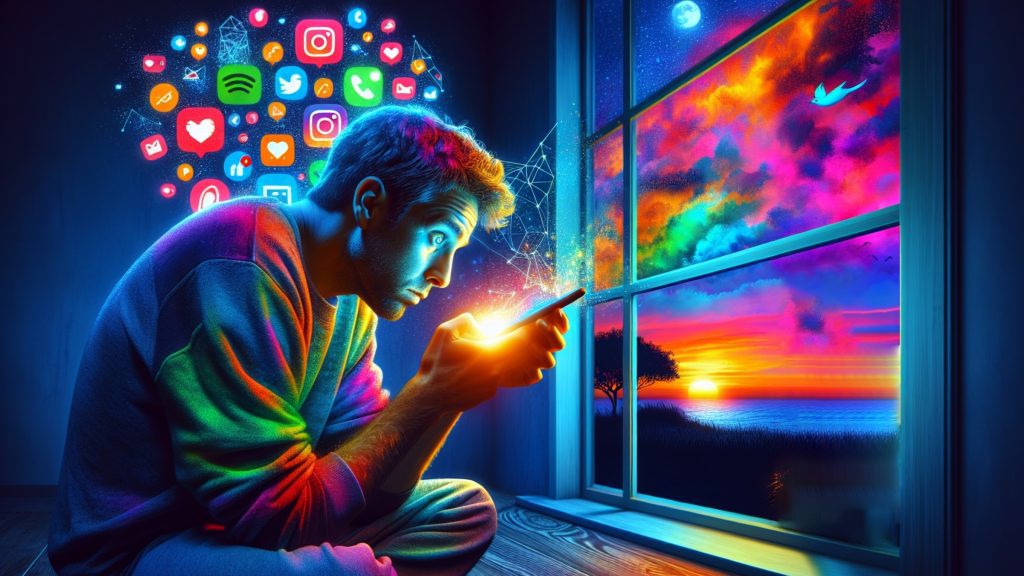
A UK study, “The psychophysiology of Instagram”, found that platforms like Instagram and TikTok trigger strong physiological reactions, raising concerns about social media addiction symptoms and digital dependence.
In the study, researchers monitored 54 young adults scrolling Instagram for 15 minutes, tracking heart rate and sweat. As they used social media, they found heart rates slowed but the subjects’ sweating increased, similar to deep emotional involvement.
The reaction was uniquely limited to just social media but while reading news articles, their bodies didn’t trigger the same response.
The shock came when participants stopped scrolling and resumed reading. Instead of relaxing, their heart rates increased, sweating intensified, and they reported stress, anxiety, and even social media cravings. These withdrawal-like symptoms mirror those of substance addiction, raising questions about whether these are signs and symptoms of social media addiction.
Future Generations Social Media Addiction Symptoms
Social media platforms are designed to retain users’ engagement with tailored content schemes. As engaging as these platforms are, this very same engagement can become disengaging, uncomfortable, and even stressful.
The study found that regardless of whether users exhibited signs of “social media addiction,” everyone experienced similar physical and emotional stress when logging off.
Symptoms of being addicted to social media have detrimental effect on future generations, especially for young people who’ve grown up with these platforms, a “social media detox” won’t be a simple break but a battle against deeply ingrained habits. An addiction to social media symptoms is driven by the human need for belonging and social interactions, making it that much harder to control use.
This also leads to the younger generation as well as the older generation having difficulties in focusing which could be seen as a form of social media addiction withdrawal symptoms. People speak about how their attention spam has dropped down. In Microsoft reports conducted research titled “Attention Spans”, which showed that the human attention went down from 12 seconds to 8 seconds which is shorter than that of a goldfish 9 seconds. This is due to the long hours of social media platforms usage.
Another study, “Restricting social networking site use for one week produces varied effects on mood but does not increase explicit or implicit desires to use SNSs,” suggests reducing social media usage, even briefly, doesn’t drastically affect mental wellbeing. Unlike drugs, where face-to-face interaction can’t fully replace the need, withdrawal symptoms of social media addiction may not be severe, indicating that social media influence is powerful, but not equivalent to substance addiction.
As technology evolves and younger generations grow up with social media as a constant companion, its long-term impact is yet to be seen, with hopes it won’t lead to social media addiction symptoms. If disconnecting from social media already triggers stress responses, what will it do to mental health down the road?
Inside Telecom provides you with an extensive list of content covering all aspects of the tech industry. Keep an eye on our Community section to stay informed and up-to-date with our daily articles.